2023 Marine Robotics Summer School
2023 Marine Robotics Summer School | Speakers
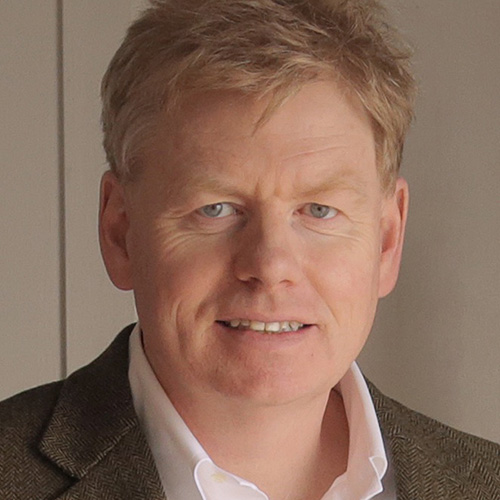
John J. Leonard

Doug Hart

Renato Mendes
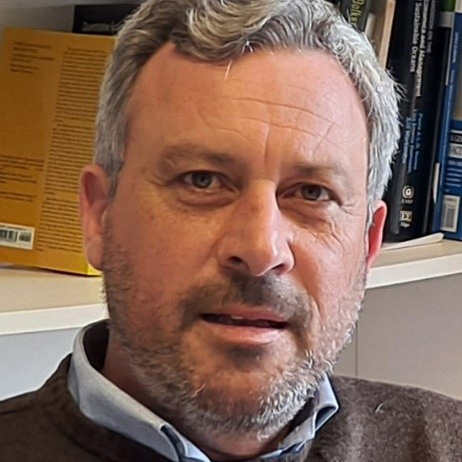
Gui M. Menezes

Ana Martins
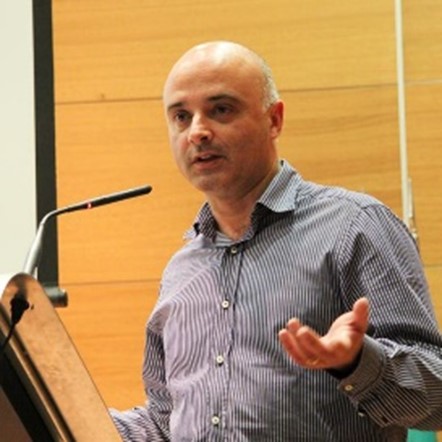
João Sousa
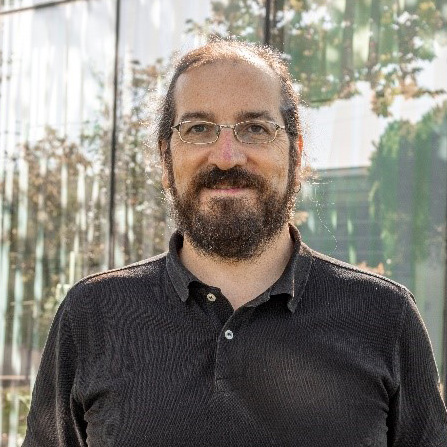
Francisco Campuzano
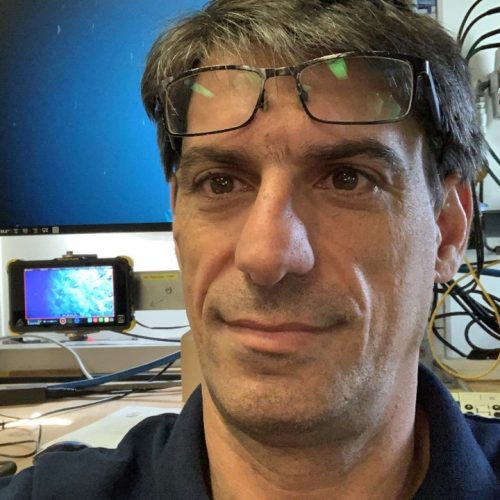
Telmo Morato
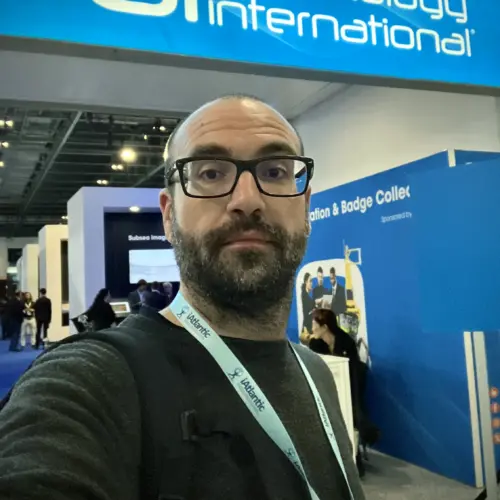
Carlos Dominguez-Carrió
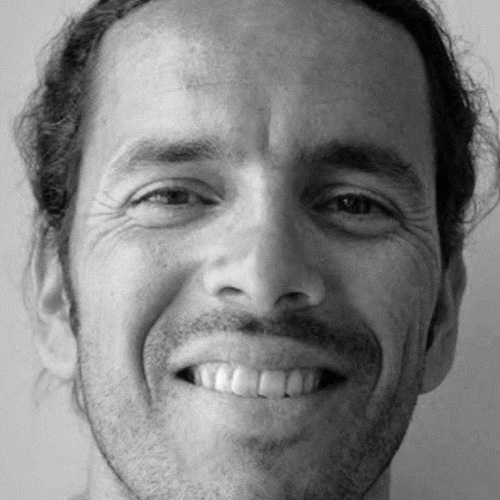
Jorge Fontes
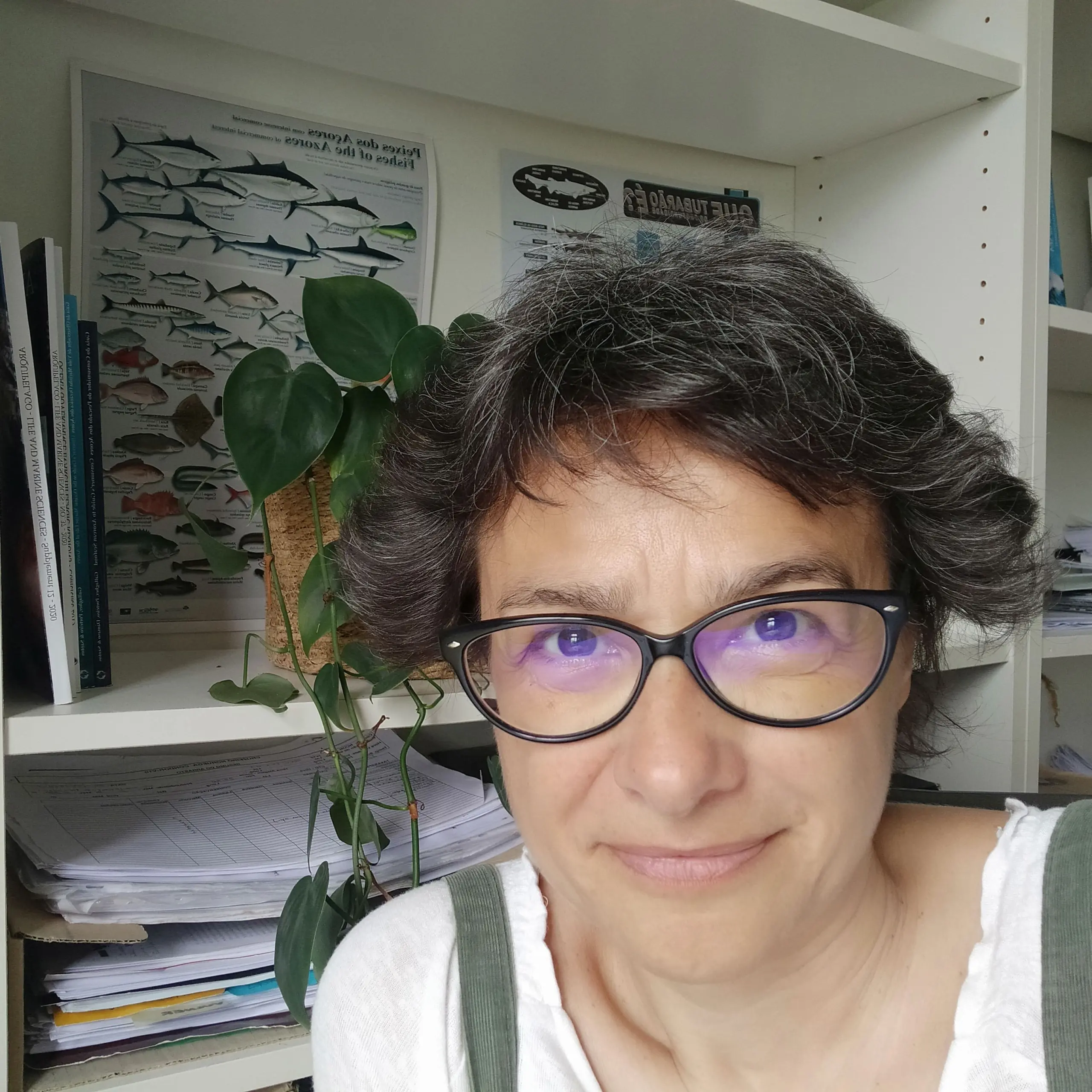
Eva Giacomello
John J. Leonard
John J. Leonard is Samuel C. Collins Professor of Mechanical and Ocean Engineering at MIT and a member of the MIT Computer Science and Artificial Intelligence Laboratory (CSAIL). His research addresses
the problems of navigation and mapping for autonomous mobile robots. He holds the degrees of B.S.E.E. in Electrical Engineering and Science from the University of Pennsylvania (1987) and D.Phil. in Engineering Science from the University of Oxford (1994). Prof. Leonard joined the MIT faculty in 1996, after five years as a Post-Doctoral Fellow and Research Scientist in the MIT Sea Grant Autonomous Underwater Vehicle (AUV) Laboratory. He has participated in numerous field deployments of AUVs, including under-ice operations in the Arctic and several major experiments in the Mediterranean. He is an IEEE Fellow and an AAAS Fellow. https://marinerobotics.mit.edu/
Doug Hart
Douglas P. Hart is an MIT professor of mechanical engineering and co-founder of three venture backed biotechnology companies. Doug has a history of successful inventions from within and outside of academia and serves as a technical advisor for numerous companies and professional organizations. He has been involved in the commercial development of technologies ranging from satellite propulsion and unmanned drones to surgical robots. Doug received his BSc degree in aeronautical/astronautical engineering from the University of Illinois, his S.M. degree in mechanical engineering from the Massachusetts Institute of Technology and his Ph.D. in mechanical engineering from the California Institute of Technology.
Renato Mendes
Renato Mendes holds a PhD in Physics (Oceanography) from the University of Aveiro and completed a Masters in Meteorology and Physical Oceanography in 2010 at the same institution in Portugal. His research interests focus mostly on coastal oceanography, using multi-platform data, such as observations, remote sensing, and numerical models. Recently, his studies have addressed the use of networked autonomous systems to survey coastal fronts in a coordinated and collaborative manner. He is co-authored over 20 articles in journals as well as participated in the writing and submission of several FTC, EEA and H2020 projects.
He also holds a project management professional certification by the Project Management Institute (PMI). As of February 2021, he is a researcher at Colab +Atlantic with an alignment with the LSTS lab at FEUP. He worked as a mediator in interdisciplinary teams in the CoLAB + ATLANTIC combining his strong background in oceanography with ocean robotics, exploring innovative methodologies for ocean observation.
Gui M. Menezes
Gui M. Menezes, is Auxiliar Researcher at University of the Azores, and Director of the of the Institute of Marine Sciences – Okeanos, a research unit of the University of the Azores. His research areas are marine ecology, deep-sea and seamounts ecology and fisheries of demersal and deep-water fish. He is the author or co-author of more than 70 scientific publications (ISI), 6 book chapters and co-editor of two special volumes of two international scientific journals. He is also co-author of a patent of a method to sample fish sizes of landed commercial species using vision technologies. He took part in more than 30 research projects with regional, national, or international funding either as coordinator or member of the research teams. He took part in numerous research campaigns aimed at demersal and deep-sea fish species in the Azores, Madeira, and Cape Verde, most of the times as cruise leader, onboard research vessel Arquipélago. Among others, he also participated in the MARECO campaign that took place in the Middle-Atlantic Ridge onboard the N/I G.O. Sars, dives in LULA submersible up to 900 m depth, and was a member of the Scientific Committee of the CENSEAM under the Census of Marine Life program. He taught classes on the master’s degree in Integrated Ocean Studies at Department of Oceanography and Fisheries of the University of the Azores, and supervised several internships, Master and PhD students. He was the national representative in the SCARFISH strategic group in the EU, member of several ICES working groups, and was coordinator of the Deep-sea and Open Ocean research group of the research center MARE. Between 2016 and 2020, he held the position of Regional Secretary for the Sea, Science and Technology on the Regional Government of the Azores.
Ana Martins
Ana Martins is Doctor Communitatis Europeae in Ocean Sciences, field of Physical Oceanography. Presently she is Associate Professor of Ocean Sciences, Coordinator of the Department of Oceanography and Fisheries (DOP) at the Faculty of Sciences and Technology at the University of the Azores (FCT/UAc), Director of the Master Course in Integrated Studies of the Oceans, Director of the License course in Ocean Sciences and also, Oceanography team leader at DOP. Founding member of the R&D Centre OKEANOS (now institute), member of the FCT/UAc Working Group for the Promotion of Space Sciences, member of the POPA steering committee, EO NEREUS Group, and Committee member of the program SPIE Remote Sensing, among others. Since 1998, regent and lecturer of more than 20 disciplines in the field of Oceanography. Her team deployed more than 40 deep-sea moorings, collected oceanographic data in more than 3500 stations, installed an HRPT satellite receiving station, and a network of tide gauge stations in the Azores. Experience in national and international projects submission, coordination or partnership and as international referee. Also, EU COST and FP external expert. Supervision of post-doctoral researchers, and (under)graduate students. Holder of several international fellowships, honors, or prizes such as: Fulbright, FLAD, AAUW, NASA, Space Girls Space Women and, more recently, as team winner of the International Copernicus Masters competition. Main fields of research include among others: coupled physical-biological interactions and underlying physical forcing mechanisms in the open and deep ocean, climate variability studies, phytoplankton and bacterioplankton dynamics, and, more recently, marine pollution variability in coastal, open, and deep ocean systems.
João Sousa
João Tasso de Figueiredo Borges de Sousa is a Professor at the Electrical and Computer Engineering Department from Porto University in Portugal and the head of the Laboratório de Sistemas e Tecnologia Subaquática – LSTS (Underwater Systems and Technologies Laboratory). He holds a PhD and an MSc in Electrical Engineering, both awarded by the University of Porto.
His research interests include autonomous underwater, surface and air vehicles, planning and execution control for networked vehicle systems, optimization and control, cyber-physical systems, and applications of networked vehicle systems to the ocean sciences, security, and defence. He received the BES Innovation National Award for the design of the Light Autonomous Underwater Vehicle in 2006, an outstanding teaching award from Porto University in 2008 and the IEEE Ocean Engineering Society mid-career Rising Star award in 2018. He has been involved in yearly conferences and workshops and lecturing on networked vehicle systems in renowned universities in the United States of America and Europe. He was the chair of the 2013 edition of the IFAC Navigation, Guidance and Control Workshop and the chair of the 2018 IEEE OES AUV Symposium. He is one of the co-chairs of the IEEE/MTS Oceans 2021 conference that will take place in May 2021.
He is a member of the IEEE Robotics and Automation Multi-robots Systems Technical Committee and of the International Federation of Automatic Control (IFAC) Marine Systems Technical Committee. He is in the Advisory Board of the Swedish Marine Robotics Center and of the NATO MUSIC2 Innovation Advisory Board. He was the chief scientist for the Schmidt Ocean Institute cruise Exploring Fronts with Multiple Robots, which took place in the Pacific Ocean in 2018.
Francisco Campuzano
Francisco Campuzano is an oceanographer formed in the University of Las Palmas de Gran Canaria (Spain) with a PhD in Environmental Engineering from Instituto Superior Técnico (Portugal) and an M.Sc. in Estuarine and Coastal Management and Science at the University of Hull (U.K.). He has been involved in more than 20 research projects at the European, national and regional level in different areas as assessing ecological status, socioeconomics and conceptual and numerical modelling. He is the co-chair of the ICES WGOOFE WG, he is member of three EuroGOOS Working Groups: IBI-ROOS, MONGOOS and Coastal and member of Copernicus Marine Service Champion User Advisory Group (CUAG). In recent times, he was involved in the development of oceanographic operational systems linking watersheds, estuaries and the open ocean (Brito et al., 2015; Campuzano et al., 2016; Campuzano, 2018). He has led several European projects of operational oceanography and environmental management (e.g., Atlantic Area iFADO & CMEMS-LAMBDA) and is the author/co-author of 22 scientific papers and 26 book chapters. He joined +ATLANTIC CoLAB in 2021 to contribute in operational modelling activities.
Telmo Morato
Telmo Morato is a Portuguese principal marine scientist at the Institute of Marine Sciences – Okeanos of the University of the Azores. Currently, he co-leads with Marina Carreiro-Silva the Azores Deep-sea Ecology research group aiming to advance the understanding of deep-sea ecosystems in a changing planet to inspire society and inform the sustainable management of the oceans. Over the last years, Telmo led several research projects and explorations that helped unveiling new deep-sea species, communities, biotopes, and even new hydrothermal vents, but also unveiled the impacts of deep-sea fisheries on such ecosystems. Telmo and his team lead the development of affordable camera systems to democratize deep-sea exploration and make it accessible to all. All the knowledge gained over the last decade has been transferred for improved ecosystem-based management and conservation of deep-sea ecosystems at regional, national, and international levels.
Carlos Dominguez-Carrió
Carlos Dominguez-Carrió is deep-sea researcher at the University of the Azores. His work focuses on better understanding the ecology of deep-sea benthic species and communities in areas of the Mediterranean and Atlantic Ocean using underwater imaging technology as the main sampling device. His studies focus on deciphering the ecological processes that shape the diversity and spatial distribution of deep-sea benthic fauna at different spatial scales to assist in the development of effective conservation strategies to protect such fragile ecosystems. He has also been actively involved in the development of affordable underwater imaging systems for the exploration and sampling of deep-sea benthic habitats, including the Azor drift-cam and stereo-BRUVs.
Jorge Fontes
I am an Azorean native Marine Biologist (PhD). During my earlier career I focused on fish ecology and biology, artisanal fisheries, marine protected areas, moving on to fish recruitment dynamics and population connectivity applied to the design of MPAs during my PhD. For my first postdoc, I coordinated the mitigation and control program of the marine invasive algae. I have been actively involved in multiple innovative international marine technology projects (EU and EEA grants) to advance the state-of-the-art in the field of applied marine robotics for marine research. Over the last two decades I have been involved in multiple research projects of applied biotelemetry and biologging of marine animals, including invertebrates, reef and seamount fishes, as well as marine megafauna, mainly sharks and mobulids. I have focused on the development of new disruptive non-invasive biologging tools to track iconic marine megafauna and characterize their environment. I have a long record of international collaborative work and international field experience. A significant part of my work is used to support decision making. I have presented my research in numerous international conferences, and have published numerous scientific articles, one book and two book chapters. I supervise, Msc and PhD students, and coordinate several projects. My research has been featured in major international networks, WBO, National Geographic, BBC, Odyssey, Discovery channel, RTP.
Eva Giacomello
Eva Giacomello is a biologist, working as Assistant Researcher at the Institute of Marine Sciences – Okeanos, University of the Azores. She has a PhD in Evolutionary Biology from the University of Padua, Italy. Her research interests include fish ecology and biology, seamount management and conservation, marine ecosystem services. Eva started her scientific career studying the reproduction of fishes at the University of Padua. She then moved to the University of the Azores, broadening her knowledge and expertise of issues related to deep-sea resource management and conservation. She is currently working on the ecology of demersal and deep-sea fishes, and responses of fish communities to ecological pressures, with special emphasis on the Condor seamount marine protected area.
